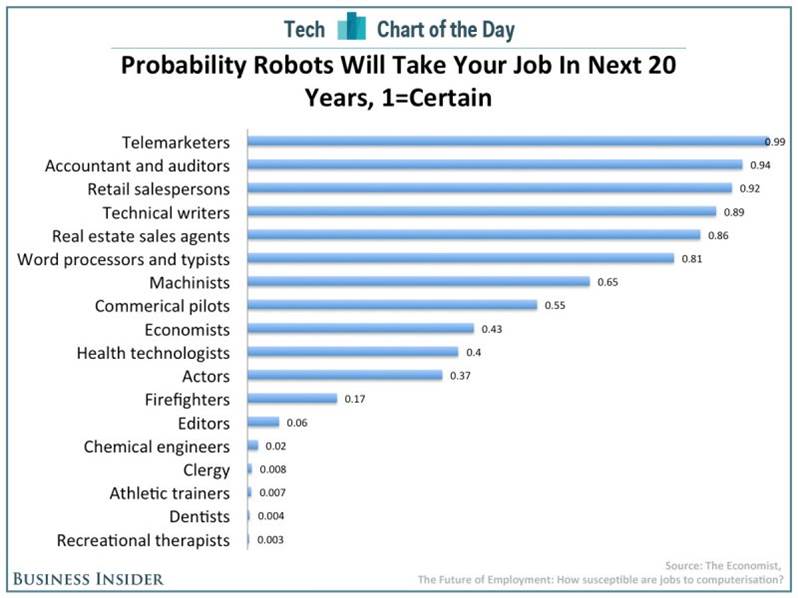Waking Up in Tomorrow
The annual World Future Society conference was just held in San Francisco. As always, this event stirs up plenty of interesting conversations. Here are a few themes that futurists are talking about now...
More Utopias, Please!
Worst-case scenarios are the B-movies of the foresight world. Cheap, dramatically compelling, and easy to make -- these stories are as popular with media pundits as they are with Hollywood producers. Yet, we are all getting fatigued by the drama of apocalyptic narratives are looking to co-create a better world. We need more positive visions of the future.
The Quest for Immortality
Coming soon, your plans for retirement may be extended indefinitely. Advances in telomere and cancer research suggest that maximum human lifespans may be lengthened by up to 30 years by 2045. By some estimates, this may be conservative. Famed futurist Peter Schwartz proposes that some of today's 20-year olds may live to see age 300.
Make Friends with Robots
People are expensive, things are cheap. Technological unemployment is the dark side of productivity gains. The smartest chess players (and most useful employees) are experts empowered with AI partners. According to Janna Anderson of Elon University (in a brilliant presentation), people in professional positions will be "nearly 100% either partnered with or replaced by machines in far less than 40 years if current trends prevail."
 Disappearing Organizations
Disappearing Organizations
Google now has just 1/10th the employees of AT&T at its peak. Airbnb now has more rooms than Hilton Hotels, with just a small fraction of the staff. We are learning how to do more with less, and while technology creates jobs, they are seldom enough to offset the jobs that they replace. (The biggest opportunities of the next few decades will be in careers that we haven't even imagined yet!)
The DAO Is Now
Distributed Autonomous Organizations are the shiniest/newest things that futurists are talking about. These are algorithms and automated systems that perform basic services and tasks, without having an ownership structure or staff. The Hong Kong Transit system currently has a DAO that provides tasks to over 10,000 maintenance engineers every day.
And this was controversial, too...
Probability robots will take your job in the next 20 years
All of this technological displacement may eventually lead to a universal minimum income "safety net", 20-30 hour workweeks, a new "leisure class", and extreme disparities in wealth/income. The possibilities are still open-ended.
The Cybrids are Coming
While the Millennials are "digital natives" who are comfortable with technology, the generation now 18-years old and younger can't live without it. These generation gaps are now accelerating. Today's teens have moved past phone calls/emails and now rely almost exclusively on text messaging and visual communication. A quarter of this group has abandoned Facebook in favor of other social platforms (such as Pinterest, Instagram, and Vine), says Jared Weiner of The Future Hunters.
There is also a rising prevalence of "neolescence" - adults are staying children longer, yet children are becoming adults more quickly.
Future Unpredictable
"Throughout history, the engine of human progress has been the meeting and the mating of ideas to make new ideas" - Matt Ridley
In summary, we are in the middle of a combinatorial explosion of new technologies. Nearly universal access to knowledge is creating an unprecedented range of choice and possibilities.
Indeed, the best way to predict the future may be to create it.
Jim Lee, CFA, CMT, CFP®
Disclosure: Information contained herein is for educational purposes only and is not to be considered a recommendation to buy or sell any security or investment advice.
